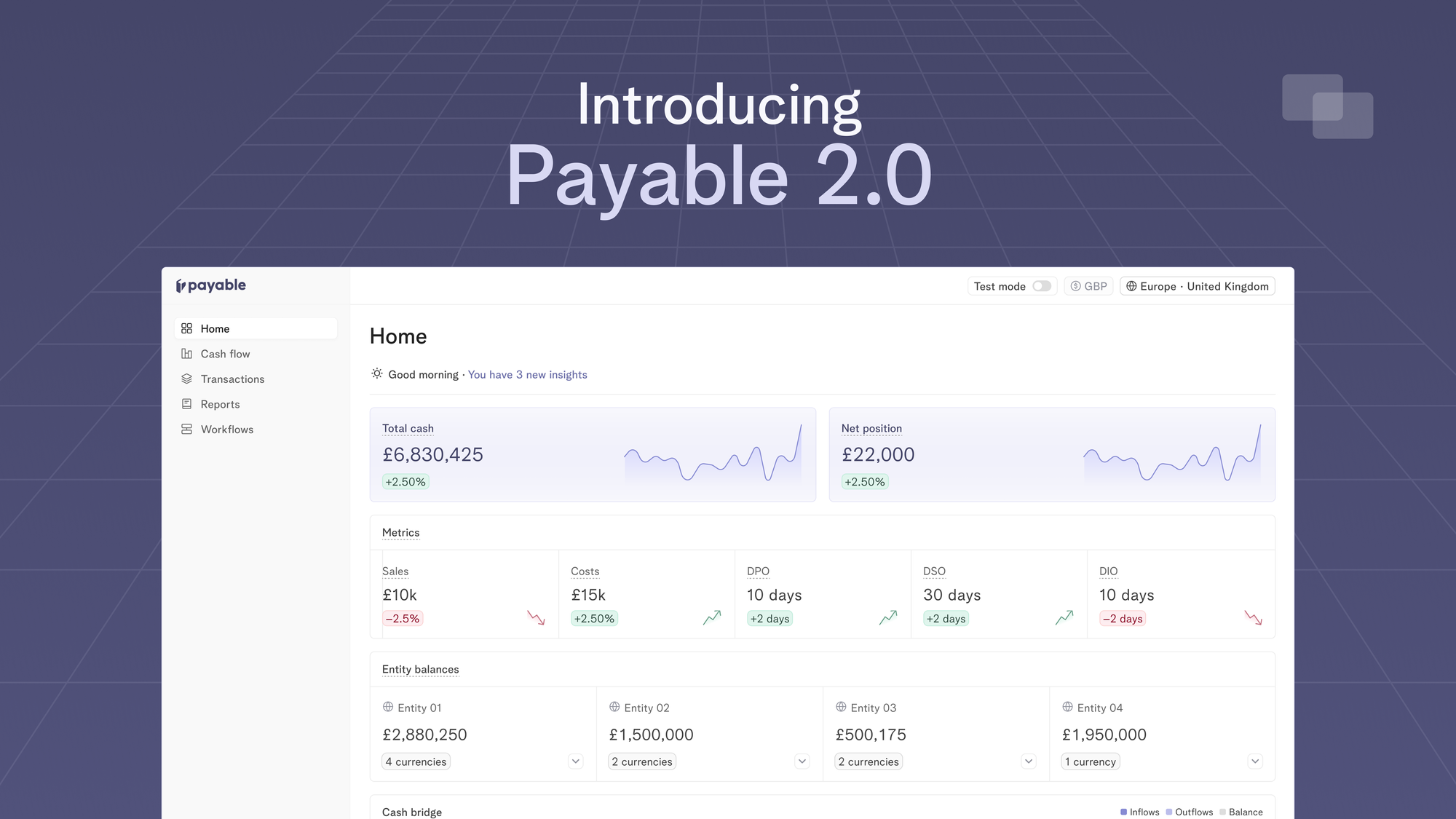
We often hear businesses obsess about making a profit. While profits are an essential marker of success, it’s important to remember that you can’t spend profit; you can only spend cash. Businesses need to ensure they are maintaining cash balances that are healthy to pay for daily expenses, meet payroll, and cover unexpected costs. And that is where cash management comes into play. Efficient cash management involves optimising the use of available funds, maintaining adequate liquidity, and making informed decisions to ensure a healthy financial position.
Understanding cash management
Before delving into the strategies, it's crucial to understand what cash management entails. Term cash management refers to the process of collecting, managing, and disbursing money to meet its financial obligations. It is a key component to ensure the business is set for success to accomplish their long term goals and to fund their day to day activity. Cash management is often called treasury management, but that is only accurate when referring to short-term financing activities. Cash management can help companies avoid money shortages, minimise borrowing costs, and improve overall financial performance.
What is an example of cash management?
Cash management options can come in various forms, including the improvement of accounts payable processes. Let's say a business has an existing (and good) relationship with a vendor. The two have been doing business with one another for the last five years. The vendor ships supplies to the business every month and requires payment on its invoices every 30 days. Since the two have an amicable relationship, the business negotiates payment for invoices every 45 days. Skilful negotiation with suppliers and customers can significantly impact cash flow. Extending payment terms with suppliers can provide extra days to hold onto cash while incentivising customers to make early payments can accelerate efficient business cash flows.
Who owns cash management in a business?
Cash management requires a deep understanding of a company's financial position, cash flow, and investment options. That is the core responsibility of the Finance and Treasury teams within the business. Depending on the size of the company and the complexity of the corporate structure, Finance Controllers or Corporate Treasurers will be tasked with implementing cash management strategies. They are also responsible for forecasting cash flows, and ensuring there is enough cash available to meet company's financial obligations. The finance team will also help identify investment activities that can maximise idle cash and current assets across all bank accounts.
Key components of cash management
Cash flow management involves monitoring a company's cash inflows to ensure there is enough money to cover its outflows and maintain financial stability. Companies might choose to outsource all or part of their cash management responsibilities to external service providers, however, it's important that the finance team is fully responsible for managing cash and understand how much cash assets they have available and what their cash positions are at any moment in time.
Examples of cash inflows include:
- Revenue from paying customers
- Interest and dividend income
- Tax refunds
- Investments & funding
- Loans
Examples of cash outflows include:
- Employee salaries and wages
- Payments to suppliers and vendors
- Investment payments and dividends
- Payments made to repay borrowing, such as bank loans
What is a Cash Flow Statement?
The cash inflows and outflows are summarised in the Cash Flow Statement which is one of the three financial statements finance teams prepare together with the Balance Sheet and the Income Statement. The Cash Flow Statement shows the flow of cash into and out of a business over a period of time and provides necessary insights that can be used to track money, plan for the future, manage working capital, and analyse the financial health of the business.
Analysing cash flow patterns
An important step in effective cash management is analysing cash flows and making sense of the numbers. By studying historical cash flow data, businesses can identify trends, seasonal fluctuations, and peak periods of cash inflows and outflows. This analysis helps create accurate cash flow forecasts and make well-informed decisions.
For example, seasonality is an important factor to consider when looking to set a budget for the upcoming year. Looking at trends and patterns in cash inflows and outflows over a longer period of time allows to plan for seasonality, such as increased sales over the Christmas period if working in an e-commerce industry, or a slowdown during August if working in professional services.
Creating a cash reserve
Building a cash reserve is a fundamental aspect of cash management. Unforeseen expenses or emergencies can arise at any time, and having a reserve ensures that these situations can be handled without jeopardising regular operations. Financial experts recommend their corporate clients set aside at least three to six months' worth of expenses in a liquid and easily accessible account to cover unpredictable cash activities.
Minimising cash conversion cycle
The cash conversion cycle refers to the time it takes for a company to convert its investments in inventory and other resources back into cash. Efficient cash management involves minimising this cycle to free up cash quickly. In other words - having more money in the bank account to improve liquidity and having excess cash when needed. Techniques such as just-in-time inventory management and prompt invoicing can help achieve this goal.
Investing surplus cash wisely
Having surplus cash offers an opportunity to earn additional income through investments. However, it's essential to invest wisely, considering factors like risk tolerance and liquidity needs. Liquidity management techniques and measures will differ from one business to another, as the risk tolerance will be defined by short and long-term business goals. Short-term investments like money market funds can provide a balance between returns and accessibility.
Dealing with debts strategically
Managing debts is a critical aspect of cash management. Prioritising high-interest debts and developing a structured repayment plan can help reduce debts and reduce liquidity problems. For businesses, implementing tighter credit policies can prevent cash flow disruptions caused by late payments or bad debts. Techniques such as credit checks on potential customers and setting clear credit terms in time can help to maintain a healthy cash flow.
Establishing financial goals with budgeting
Having clear financial goals is essential for effective cash management. Whether it's saving for a significant purchase or expanding a business, setting specific targets helps aligning cash management strategies accordingly. Creating a cash flow budget helps maintain a company's financial stability and provides tighter discipline and controls for the company's cash flow. Planning and managing cash paid and cash coming in, allows businesses to allocate funds optimally and anticipate potential cash shortfalls.
We can help
Payable is a smart option for businesses looking for cash management solutions. Payable's seamless integration with banking partners and financial tools means that all invoices and payment data are connected in a single view in real-time. Businesses benefit from complete cash visibility across all their accounts, automated reconciliation and payouts from a single platform. This makes it even easier for finance teams to make informed decisions and reduce time spent on manual tasks.

Announcements
Introducing Payable 2.0 - one platform to optimise working capital, make fast liquidity decisions and move your cash metrics in real-time
13 Apr 2024
Today, we’re excited to launch Payable 2.0 which is our evolution to a more connected, intelligent and automated platform for finance teams to track their cash flows in real-time.

Cash Management
Mastering 13-week direct cash flow forecasts
26 Mar 2024
Knowing how your cash flow will behave in the future is crucial for the success and sustainability of any company. One way to achieve this is through the use of a 13-week direct cash flow forecast, which provides a detailed projection of a company's inflows and outflows over a specific time period.
